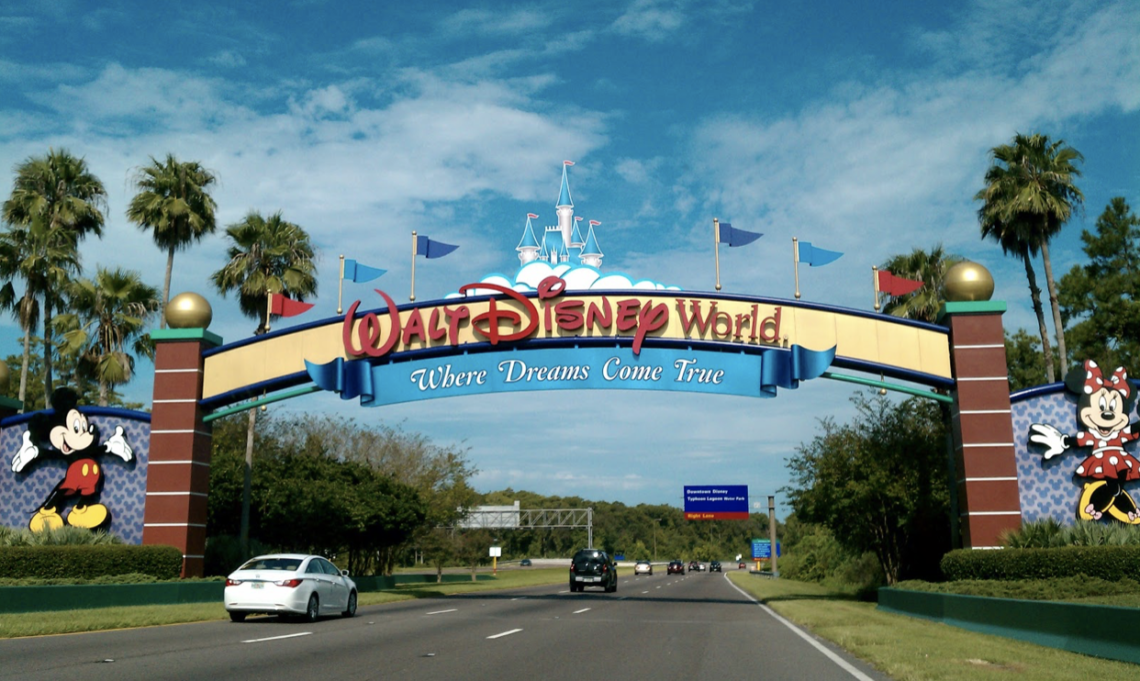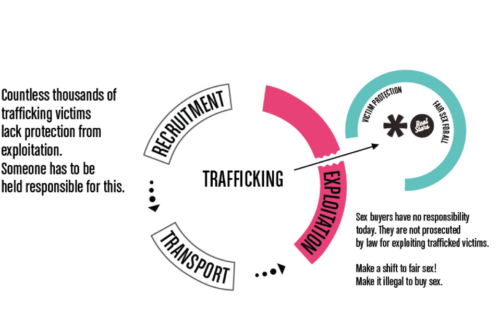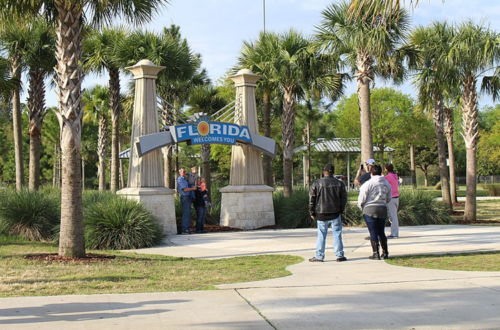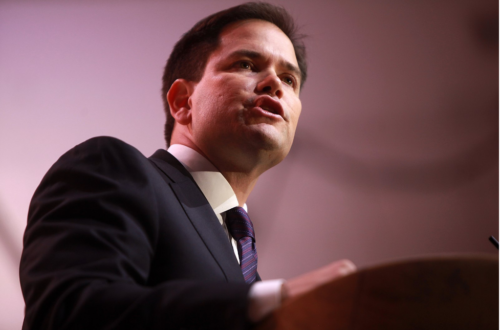On Feb. 27, Governor Ron DeSantis’ campaign promise to address “WOKE” corporations applied to Walt Disney Co. with House Bill 9B.
As lawsuits are filed, this year-long dispute reveals the political term “WOKE” as a central emphasis. Among the scrutiny of local taxpayers and employees is the future of Florida’s socio-political norms and tourist economy.
Otherwise known as the Independent Special Districts Bill, House Bill 9B redefined the company.
It amended the Reedy Creek Improvement District where Disney resides, a special tax district with complete autonomy over all infrastructure projects, bonds and taxes. It has nearly $160 million in tax rates and $1 billion in debt.
Gov. DeSantis altered the Disney board of supervisors with hand-picked members and nullified previous territorial agreements, placing further administrative provisions over Disney attractions and renaming the district to the Central Florida Tourism District.
At a press conference, Disney remarked how DeSantis is “weaponizing the power of government to punish private business.”
The term “WOKE” is a focal point of this year-long dispute. With its various interpretations throughout Florida politics, this term establishes a socio-political precedent for all, regardless of whether there is a victory for one or a compromise. It also reflects how it maintains this contention relevant despite halted discussion.
Disney’s use of “WOKE” can be considered progressive activism, reflected in its public opposition to the Parent Rights in Education Law enacted on March 28, which is how the dispute began.
Opponents recognize it as the Don’t Say Gay Bill that placed measures in classroom settings regarding gender identity and sexual orientation.
In a press conference with NBC, DeSantis explained how the term “put[s] merit and achievement behind identity politics, and it’s basically a war on the truth…it has corrupted institutions.”
These measures began on June 1, but this multifaceted issue is being challenged in court. Two lawsuits have been filed: one in federal court by Disney on April 26 and one in state court by DeSantis on May 1.
Disney pushes to uphold their federal lawsuit under the supremacy of constitutional violations, specifically the first amendment right to freedom of speech. As for the state-level case, it argues for violations in contract agreements established under the Reedy Creek Improvement District.
In both cases, DeSantis justifies his lawsuit under the new tax district approved by the Florida Legislature, limiting Disney’s alleged business advantages over the state.
“I think they crossed the line,” he said. “We’re going to make sure we’re fighting back when people are threatening our parents and threatening our kids.”
However, both claimants may place their reputations at risk with this liability that cannot be redacted.
Disney’s plan to invest $17 billion in new facilities is now on hold. On May 18, the corporation suspended its $1 billion investment in the Lake Nona Project.
The project aspired to relocate thousands of employees from California to Florida. Instead, Disney faces measures to compensate employees and halted construction.
Disney CEO Robert Allen Iger expressed in a statement that Disney is concerned with its current social contribution to job creation compared to DeSantis’ alleged tax benefits that would come with its limited autonomy.
“Does the state want us to invest more, employ more people, and pay more taxes, or not?” he said.
These lawsuits may also burden DeSantis as he defies Florida’s largest taxpayer. With a loss, failure to completely fulfill his campaign promise to regulate “WOKE” corporations could jeopardize his image, given his recent presidential campaign.
Located in Orlando, Florida, approximately three million people may consider their livelihoods reliant on Disney. It’s a global tourist destination and central Florida’s largest employer with nearly 75,000 employees, according to the New York Times.
A 21-year-old cast member for Disney, wishing to remain anonymous, has been an employee for nearly a year. She believes the company has handled the dispute well.
“Disney does a good job of keeping the outside world outside, and the magic inside,” she said.
If Disney loses this case, it could cause other groups to fear standing up for their beliefs, she said. Additionally, smaller companies may not be able to recover like Disney can.
“I think he is doing this to attack minorities. DeSantis is making moves on ‘WOKE’ people to inspire his base to vote for him,” she said.
These circumstances are also causing local resentment and speculation about how both claimants will maintain Florida’s tourist economy. Will the tax burden fall on the people of Orlando?
Being an Orlando resident her entire life, she believes DeSantis would want to avoid increasing taxes since his followers would oppose it.
The decision over which court case must or will be in session remains undecided as of June 12.
Check out other recent articles from the Florida Political Review here.
Featured Image: “Where Dreams Come True:” The Walt Disney World Entrance Sign in Orlando, Florida. Unmodified photo by Wikimedia Commons used under a Creative Commons license. (bit.ly/45tOUJw).





